Nurses Narratives: Sister R Derrer
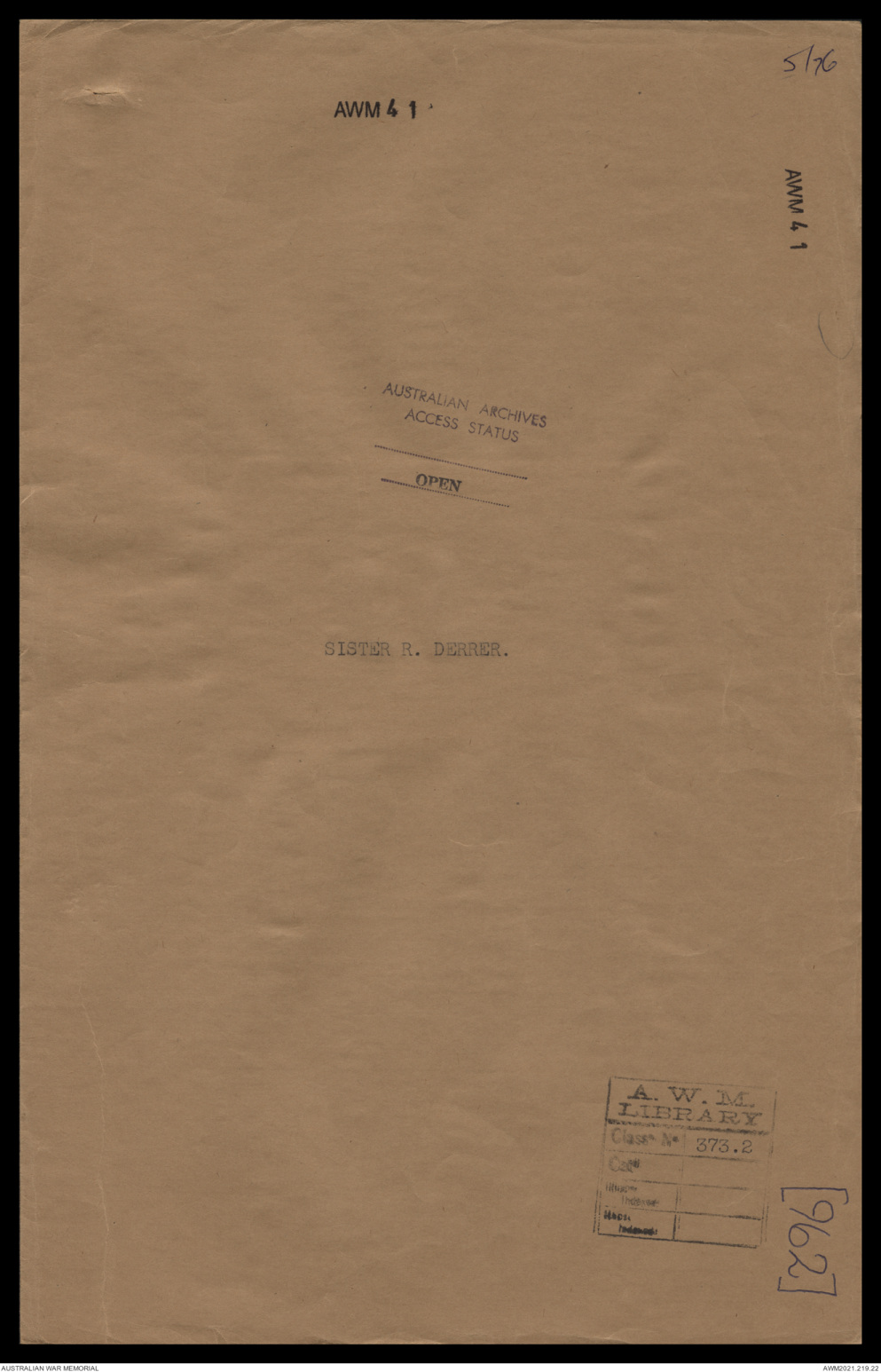
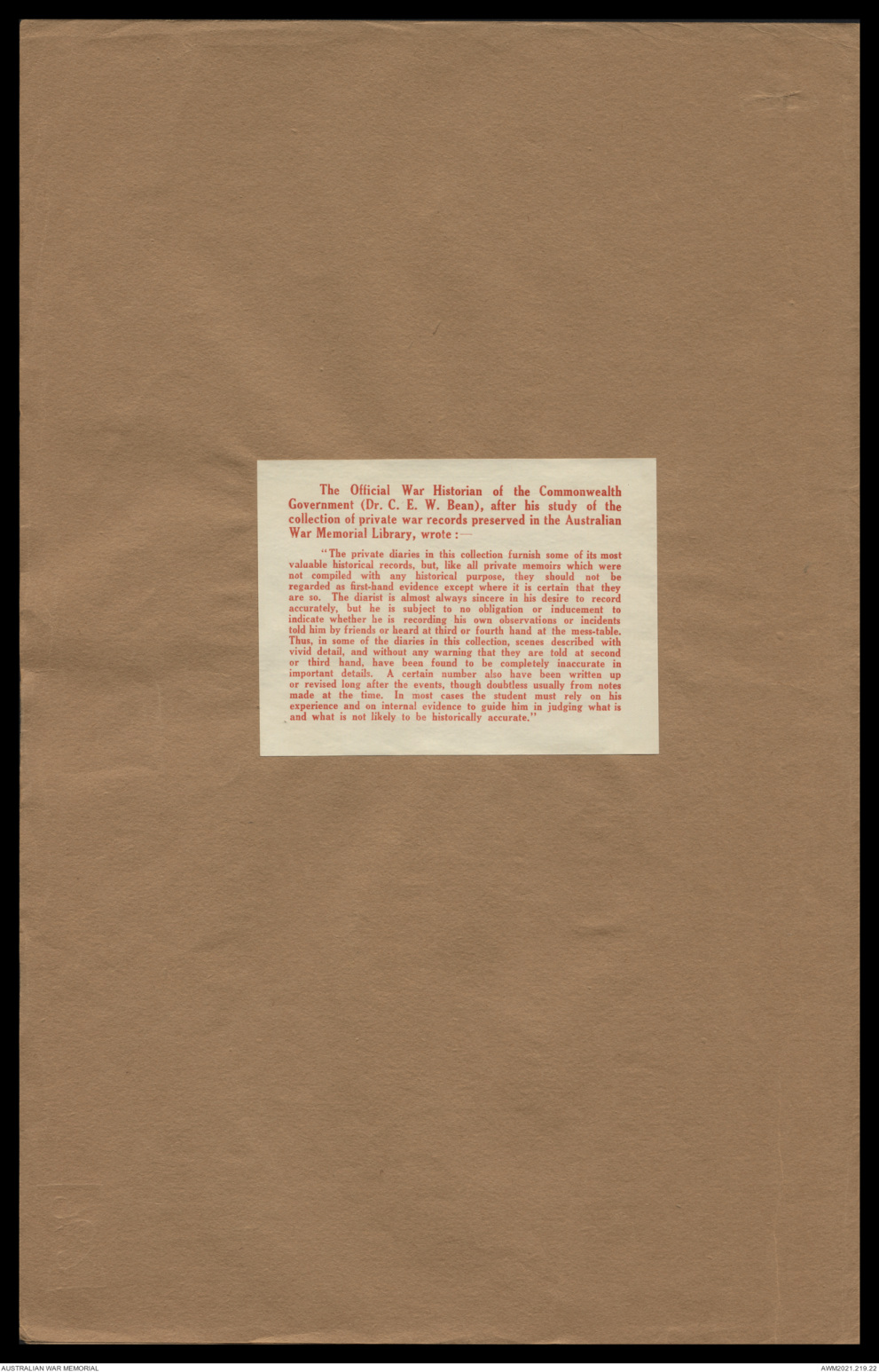
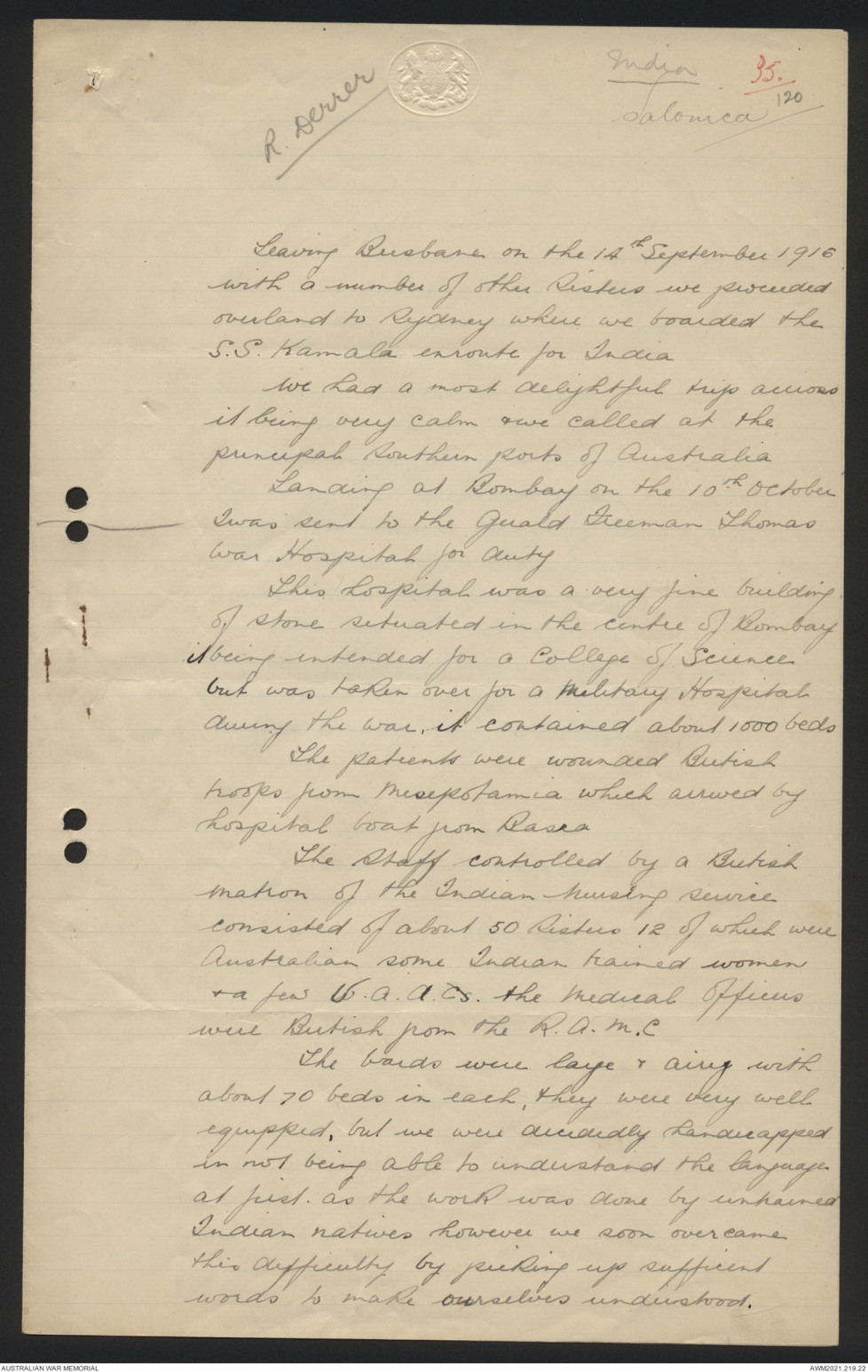
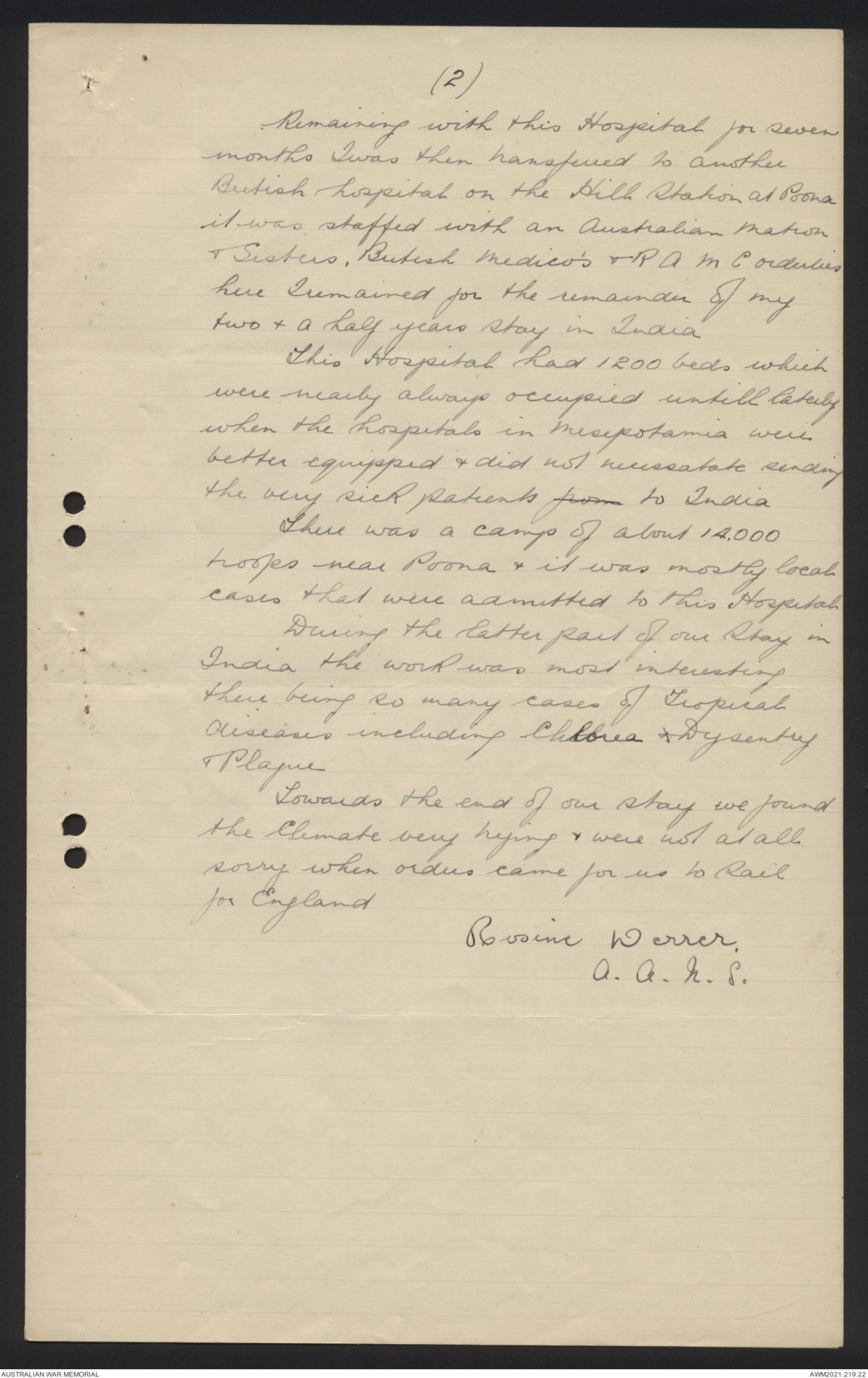
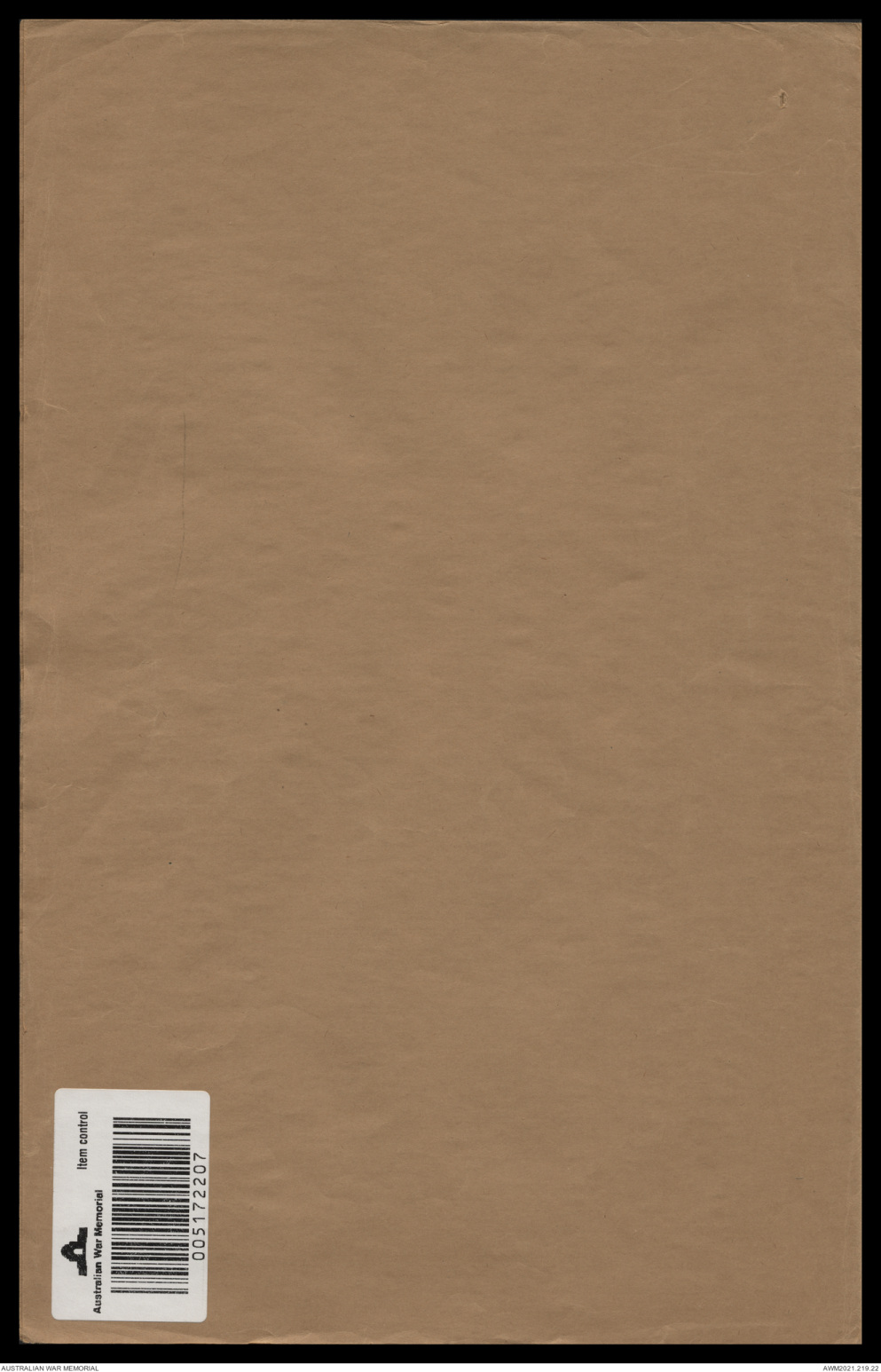
AWM 4.1. 5/76
AUSTRALIAN ARCHIVES
ACCESS STATUS
OPEN
SISTER R. DERRER.
A.W.M
LIBRARY
Class No 373.2
[962]
The Official War Historian of the Commonwealth
Government ( Dr. C. E. W. Bean), after his study of the
collection of private war records preserved in the Australian
War Memorial Library, wrote:-
"The private diaries in this collection furnish some of its most
valuable historical records, but, like all private memoirs which were
not compiled with any historical purpose, they should not be
regarded as first-hand evidence except where it is certain that they
are so. The diarist is almost always sincere in his desire to record
accurately, but he is subject to no obligation or inducement to
indicate whether he is recording his own observations or incidents
told him by friends or heard at third or fourth hand at the mess-table.
Thus, in some of the diaries in this collection, scenes described with
vivid detail, and without any warning that they are told at second
or third hand, have been found to be completely inaccurate in
important details. A certain number also have been written up
or revised long after the events, though doubtless usually from notes
made at the time. In most cases the student must rely on his
experience and on internal evidence to guide him in judging what is
and what is not likely to be historically accurate".
R. Denner
India 35.
Salonica 120
Leaving Brisbane on the 14th September 1916
with a number of other Sisters we proceeded
overland to sydney where we boarded the
S.S. Kamala enroute for India
we had a most delightful trip across
it being very calm & we called at the
principal Southern ports of Australia
Landing at Bombay on the 10th October
I was sent to the Gerald Freeman Thomas
War Hospital for Duty
This hospital was a very fine building
of stone situated in the centre of Bombay
it being intended for a College of Science
but was taken over for a Military Hospital
during the war, it contained about 1000 beds
The patients were wounded British
troops from Mesepotamia which arrived by
hospital boat from Pasia
The staff controlled by a British
matron of the Indian nursing service
consisted of about 50 Sisters 12 of which were
Australian some Indian trained women
& a few W.A.A.C s. the Medical Officers
were British from the R.A.M.C
The wards were large + airy with
about 70 beds in each, they were very well
equipped, but we were decidedly handicapped
in not being able to understand the language
at first. as the work was done by untrained
Indian natives however we soon over came
this difficulty by picking up sufficient
words to make ourselves understood.
(2)
Remaining with this Hospital for seven
months I was then transferred to another
British hospital on the Hill Station at Poona
it was staffed with an Australian Matron
+ Sisters, British Medico's + R A M C orderlies
here I remained for the remainder of my
two & a half years stay in India
This Hospital had 1200 beds which
were nearly always occupied untill lately
when the hospitals in mesepotamea were
better equipped + did not necessitate sending
the very sick patients from to India
There was a camp of about 14,000
troops near Poona & it was mostly local
cases that were admitted to this Hospital
During the latter part of our Stay in
India the work was most interesting
there being so many cases of Tropical
diseases including Cholera & Dysentry &
Plague
Towards the end of our stay we found
the Climate very trying + were not at all
sorry when orders came for us to Sail
for England
Rosine Derrer,
A. A. N. S.
 Jacqueline Kennedy
Jacqueline KennedyThis transcription item is now locked to you for editing. To release the lock either Save your changes or Cancel.
This lock will be automatically released after 60 minutes of inactivity.